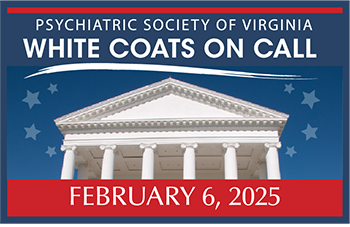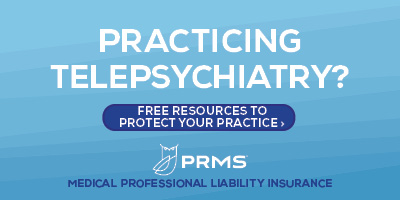Governor Glenn Youngkin announced seven grant awards which support the three-year Right Help, Right Now behavioral health transformation plan.
A foundational part of the Right Help, Right Now plan is ensuring that Virginians who are experiencing a behavioral health crisis have:
- Someone to call,
- Someone to respond, and
- Somewhere to go.
The 988 Hotline is someone to call, the mobile crisis team is someone to respond, and the investments announced today, will create additional places for Virginians to go by ensuring emergency room alternatives exist in a crisis situation.
“Today’s announcement marks another important step in our mission to build a more comprehensive behavioral health system that provides immediate care to Virginians in crisis,” said Governor Glenn Youngkin. “Through the Right Help, Right Now plan, we are ensuring that individuals across the Commonwealth have timely access to critical care. In addition, a thriving crisis response system ensures that law enforcement officers who respond to mental health crises can return to their core public safety functions more quickly.”
These grants will be administered to new crisis receiving centers (CRCs), crisis stabilization units (CSUs), and crisis therapeutic homes (CTH), and provide critical enhancement funds for currently operational sites. The awards are funded through allocations from the General Assembly in fiscal years 2025 and 2026 to expand access to care in the Commonwealth.
The behavioral health centers funded by these grants will advance a fully integrated, community-based continuum of crisis services ensuring same-day care for all Virginians. The grants are being administered through the Virginia Department of Behavioral Health and Developmental Services (DBHDS). Projects receiving previous grant funding were announced in December 2023 and March 2024. DBHDS continues to work with providers to develop additional projects and anticipates further awards to continue building a stronger behavioral health crisis system in Virginia.
“These awards reflect our steadfast commitment to building a robust behavioral health crisis system across the Commonwealth,” said Secretary of Health and Human Resources Janet V. Kelly. “By expanding crisis receiving centers and stabilizing units, we are providing Virginians in crisis with better options for care while easing the burden on our emergency rooms and law enforcement officers. This is a fundamental shift toward a more responsive and humane system of care.”
“These projects will help ensure Virginians and their loved ones have somewhere to go when they need it the most,” said Commissioner of the Virginia Department of Behavioral Health and Developmental Services Nelson Smith. “We are incredibly grateful to partner with Virginia’s community services boards (CSBs) as they work on the frontlines to provide this critical care throughout our Commonwealth.”
“These grants are a critical investment in the infrastructure needed to support Virginians in behavioral health crises,” said Executive Director of Right Help, Right Now Hallie Pence. “The ability to expand our crisis services ensures that more people will have access to the right care in the right place, at the right time. This will make an immense difference for individuals, families, and communities across the state for years to come.”
The latest round of projects include:
Highlands Community Services Board: Highlands CSB recently opened a co-located CRC and CSU for adults that show promising outcomes for the individuals they serve. DBHDS will provide $1.75M in ongoing funds to support and continue the services they are providing in Abingdon.
Loudoun Community Services: Loudoun is the one of the fastest growing counties in the nation, and county leaders identified the community need to increase services for individuals in crisis. DBHDS will provide $4.1 million in capital funding to construct a CRC and CSU.
New River Valley Community Services Board: New River Valley has established successful CRC and CSU programs for adults. These new, one-time funds totaling $4.2 million will support the establishment of three new programs for youth through co-locating a CRC, CSU, and CTH. An additional $2.4 million in ongoing funds will ensure sustainability of the two existing sites and the three new sites. The CTH is part of the CSB’s REACH services array designed to meet the crisis support needs of individuals who have a developmental disability (DD) and are experiencing crisis events. REACH programs offer an additional layer of support to emergency services, the state hospital system, and caregivers who work the most closely with individuals with a DD.
Region Ten Community Services Board: Region Ten covers the City of Charlottesville and five surrounding counties in Central Virginia, and currently operates a 16 bed adult CSU. A one-time award of $3 million will allow for construction of an adjoining 16 chair CRC. This project will be sustained with $1.7 million in ongoing funds.
Richmond Behavioral Health Authority (RBHA): RBHA serves as the regional office for the Richmond area, and they have long partnered with St. Joseph’s Villa in Richmond to operate a youth CSU. This ongoing funding of $1.3 million will provide resources for additional staff to maintain services for youth in the Henrico area and better support the newly opened CRC.
Additionally, RBHA will receive a one-time award of $650,000 to make facility improvements to their operational adult CTH, and an additional $586,000 of ongoing dollars to support this essential service.
Western Tidewater Community Services Board: Serving as the regional office, Western Tidewater will expand its existing array of REACH services by building a youth CTH to further meet the needs of youth with a DD in their area with $3 million in one-time funding and $3.1 million in ongoing funding starting in FY26. This program will provide short-term out-of-home crisis services and expand prevention resources.
Launched in December 2022, Governor Youngkin’s Right Help, Right Now plan transforms Virginia’s outdated behavioral health care system through advancement in pre-crisis, during crisis, and post-crisis support.







